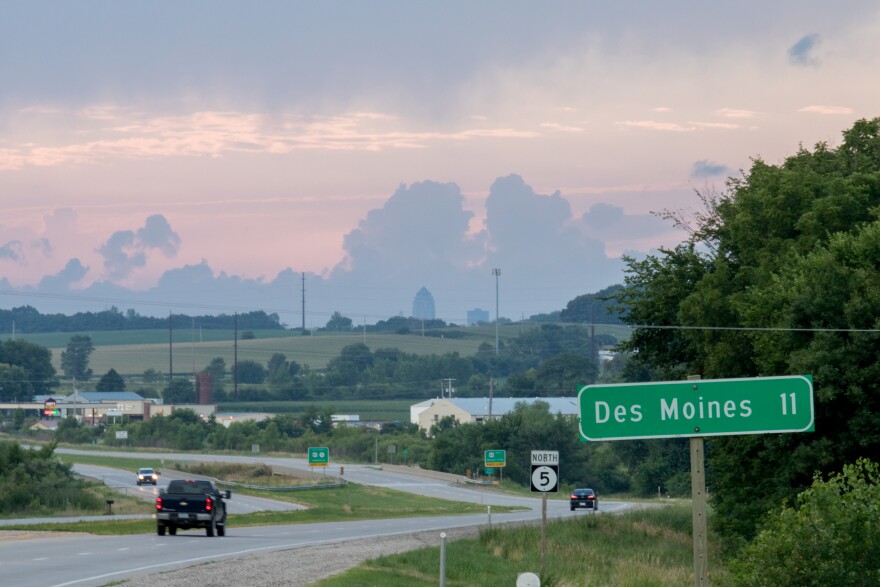Population and economic growth in metropolitan areas often pits local community interests against those of the larger region. Now, something different is happening in Central Iowa, and it’s resulting in a remarkable number of construction projects in the Des Moines area. The urban center and its suburbs are coming together for the good of all.
For decades, the suburbs of Des Moines have boomed while the city itself has retracted. Today, things seem to be evening out, according to real estate attorney Larry James.
“All the way from Altoona with their huge developments, to downtown, to Waukee, and everywhere in between,” he says.
James is with the firm Faegre Baker Daniels.
“We’re seeing a real balance of real estate development across the metro, which we really haven’t seen before,” he says.
This regional prosperity is part of what researchers at the Brookings Institution have dubbed the Metropolitan Revolution. In Central Iowa, it takes form in joint efforts to preserve water quality and to build an elaborate trail system. The Des Moines Metropolitan Planning Organization is a federally supported effort to map out a regional approach to transportation. Todd Ashby is its executive director and he sees advantages to regional thinking.
“There are certain economies of scale where you’re not having people do repetitive types of planning or programming of projects,” he says.
The DMMPO counts its Tomorrow Plan as an example of regional collaboration. Historically, however, there has been the occasional conflict between community self-interests and those of the overall region says Jonathan Rosenbloom, a professor in Drake University’s School of Law, who studies urban living.
“One of the most common criticisms or hesitations in getting involved in collaboration is the relinquishing of some sovereignty,” he says.
Rosenbloom says this concern is not insurmountable. It just takes each local government knowing it has a seat at the table and is listened to. The mayor of Carlisle considers herself a big fan of local control. At the same time, Ruth Randleman knows her town of 4,000 people southeast of Des Moines in Warren County has benefited from regionalism.
“We've certainly got what I believe to be more awareness of Carlisle, more marketing potential,” she says.
Still, Randleman says she occasionally needs to tweak regional plans to fit her small town.
“As much as we want to follow a regional model, sometimes with any community, not just Carlisle, everything doesn’t fit exactly,” she says.
The same can be said for the region’s largest city. The planning administrator for Des Moines, Michael Ludwig, says the city had to first embrace its own identity before it could find its place within the region.
“As an urban center, our competitive advantage is being urban and having urban level development, such as taller buildings and higher value per acre of development,” he says.
This realization has resulted in a downtown Des Moines skyline currently dotted with construction cranes. In his 37 years in the planning department of Ankeny, John Peterson witnessed regional initiatives come and go.
“I’ll call it leadership waves, I think it ebbs a flows depending on the people that take on leadership or dedicate time to the metropolitan region,” he says.
From his home in the state’s fastest-growing city, where he now works as a consultant, Peterson says citizens work and play with no regard to city boundaries.
“Are we really just a series of neighborhoods that form this metropolitan area? Would that be a better way to think down the road in our future?” he asks.
Over time, some metro communities have agreed to share resources. Grimes and Johnston use a single fire department, for example. But efforts to mandate cooperation have failed. A decade ago, voters in Polk Country rejected a plan to merge city and county governments. An idea floated by former governor Tom Vilsack to break the state into regional governments didn’t fly, either.
This story is part of Iowa Public Radio’s summer series “Beyond Iowa Nice,” which is looking at how common ground can be found on issues that sometimes divide us. Read or hear more stories and IPR talk programs on the subject on our website.

